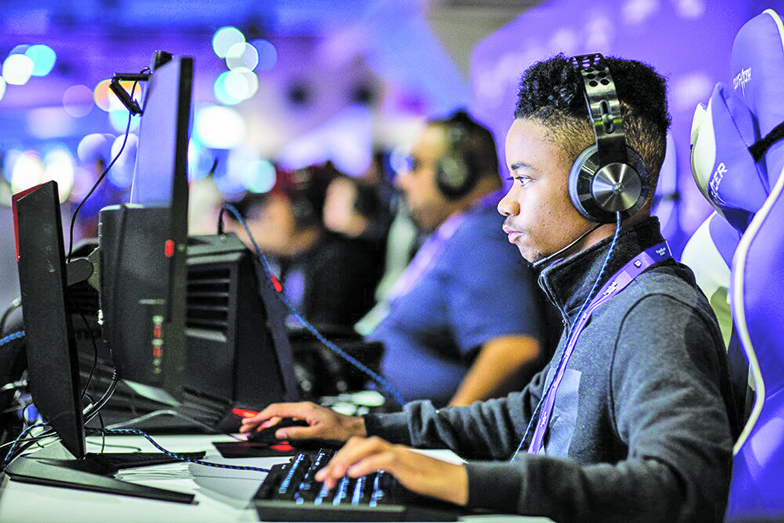
Despite there being a long history between the gaming industry and the Black community, when it comes to representation in decision-making roles, the numbers often do not add up.
Even with African Americans and people of color annually purchasing about 57 percent of all video games, just eight percent of the roughly 429,000 jobs in the video games sector, according to entertainment software association company Theresa, are currently occupied by minorities.
There are 107 Historically Black Colleges and Universities (HBCUs) across 19 states, serving more than 229,000 students. Created to equip high school students with the tools they will need to thrive in the gaming industry, the inaugural “Corners 2 Colleges” HBCU program was launched earlier this month. Among the colleges participating in the new initiative are Florida A&M University, Mississippi Valley State University, Edward Waters University, Alabama A&M University, Alabama State University, Jackson State University, and Florida Memorial University.
During the week-long course, teenagers from all over the country will experience a taste of the HBCU lifestyle while working closely with gaming experts from every facet of the business. College advisors will also help shape the skills of participants for future employment opportunities.
The first African American woman to own a collegiate esports gaming company was Keshia Walker when she founded Black Collegiate Gaming Association (BCGA) two years ago. “I was inspired by my 11-year-old nephew who dreamed of working in the esports field but said he didn’t see any HBCUs with the opportunity to build a sustainable career path towards that goal,” Walker said during a nationally televised interview in 2020.
She added, “I told him I was going to do something to change that, and I started the Black Collegiate Gaming Association. My mission and life calling are to help more students of color to get into this space, whether they attend an HBCU or not.”
During Women’s History Month this year, BCGA hosted a month-long event titled “Women Got Game” which helped students learn, connect and network with successful women of color ranging from executives to game developers. “This is a very male-dominated industry,” said Walker in the same interview. “I have faced a lot of sexist issues. A lot of men in this industry are very threatened by women, and unfortunately, a lot of it is coming from men that look just like us.”
Before a video game is released publicly, countless designers, software developers, animators, writers, technical support specialists, and audio engineers must first all do their respective part. With over 165 million copies sold worldwide, Grand Theft Auto is the best-selling video game franchise of all time.
If he were still in college, Roanoke County native Elliot Ashford says he most certainly would have applied for the “Corners to College” program. “I grew up with eight other people in my household. It was my parents, my five siblings, and my grandmother. Every weekend, we would have friendly video game competitions in the basement. If this program existed when I was in high school, they all would have encouraged me to pursue it,” Ashford said.
Additional information about the initiative can be found at https://bcgausa.org/





